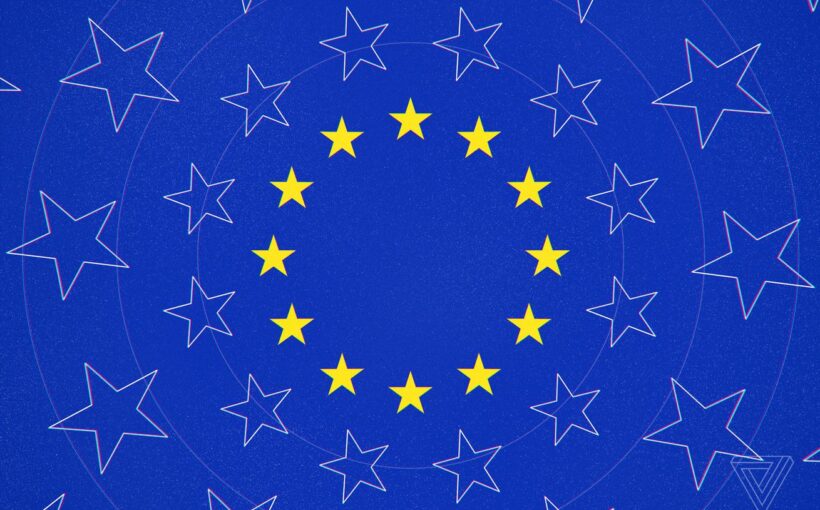LONDON — The EU is poised to start using a live information system detailing goods moving from Great Britain to Northern Ireland — a fresh sign of progress in a long-running post-Brexit trade dispute.
In a joint statement, U.K. Foreign Secretary James Cleverly and European Commission Vice President Maroš Šefčovič said an agreement had been reached on the “way forward regarding the specific question of the EU’s access to U.K. IT systems.”
The announcement — seen as key to unlocking a wider agreement on physical checks under the Northern Ireland protocol — was made following a meeting between the pair in London on Monday.
“EU and U.K. technical teams will work rapidly to scope the potential for solution in different areas on the basis of this renewed understanding,” the statement said, with a stock-take penciled in for January 16.
The Northern Ireland protocol, agreed as part of the Brexit divorce deal, keeps Northern Ireland subject to EU sanitary and regulatory standards on goods after the rest of the U.K. left the bloc.
It means goods flow freely across the Irish land border in both directions, but has required tougher controls on goods imported from Britain in a bid to protect the single market.
That move has infuriated British unionists in Northern Ireland, who are refusing to rejoin the region’s power-sharing government in protest.
EU staff in Belfast have been asking for direct visibility on goods flows into Northern Ireland’s ports since early 2021. Allowing EU officials to see what goods are entering Northern Ireland, and how the system is identifying and screening goods bound for the Republic of Ireland, is viewed as an important step in resolving the wider protocol dispute.
EU officials have been testing the U.K.’s goods data system since last year and pressing for changes.
An EU official, speaking on condition of anonymity, said that there were “some remaining technical issues” with the U.K. setup, but that both sides had now agreed on actions to be taken “over the coming days and weeks.”
The joint statement said work on the database was a “critical prerequisite to building trust and providing assurance, and provided a new basis for EU-U.K. discussions.”
The announcement coincided with resumed diplomacy between Northern Ireland unionists and the recently reshuffled Irish government.
During a phone call minutes before the official announcement, Irish Foreign Minister Micheál Martin and Democratic Unionist leader Jeffrey Donaldson discussed resolving the issue of data sharing as critical.
According to officials familiar with the call, they agreed that such data sharing should ease the ability to pinpoint goods staying in Northern Ireland without the need for physical checks — a fundamental matter for unionists who insist that no goods staying within any part of the U.K. should be subject to EU scrutiny.
An Irish government official said an effective live flow of data on goods arriving at Northern Ireland ports “is a prerequisite for wider progress. The devil’s been in the detail, as always, but the EU has always been clear that being given the full picture on goods flows will greatly reduce and focus the need for any on-the-ground checks at the ports, which should go some way to easing unionist concerns.”
They added: “We have a long way to go and many issues to sort, but this issue is basic and essential to achieving progress on other fronts.”
Donaldson, departing from his typically critical tone on Dublin’s involvement, called it “a useful conversation” that reflected his own party’s commitment to increase dialogue with Brussels and Dublin.
“We have an opportunity to get an outcome from these negotiations which replaces the protocol by arrangements that restore Northern Ireland’s place in the U.K. internal market and our constitutional position is respected,” Donaldson said in a statement.
He held out hope that the Democratic Unionists could drop their blockade of resumed power-sharing in Northern Ireland, but only if a wider U.K.-EU agreement meets his party’s core demand of an end to the so-called Irish Sea border created by the protocol.
The move comes a day ahead of all-party talks in Belfast chaired by Northern Ireland Secretary Chris Heaton-Harris, who has repeatedly postponed plans to hold a new Northern Ireland Assembly following its failure last year to form a new cross-community government, the central aim of the U.K. region’s 1998 peace accord.
The latest U.K. deadline, as defined in legislation, would require the next election to take place by April 13, three days after the 25th anniversary of the Good Friday Agreement.
This article was updated to correct an error in attribution.
Source: Politico


